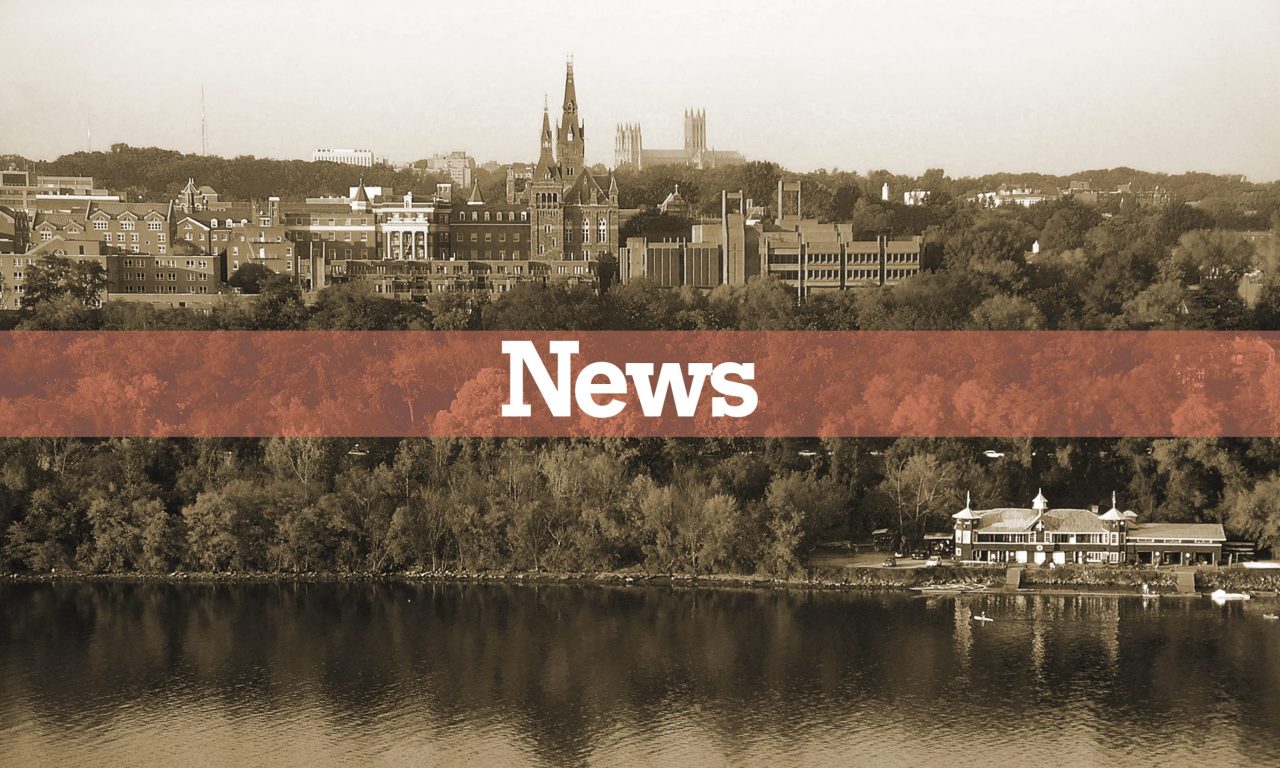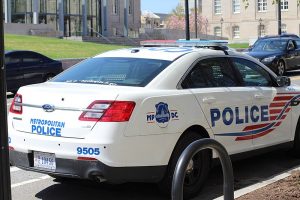Administrators addressed student concerns about on-campus police presence, Office of Student Conduct sanctions, and the new party registration system for Georgetown Day during an April 15 town hall.
The event was hosted by GUSA to answer students’ questions about the university’s rules and enforcement procedures during the annual Georgetown Day celebration, which usually includes a mix of university-sponsored activities and student parties hosted throughout the day.
GUSA president Norman Francis Jr (COL ‘20) said that he hoped the town hall could clear up confusion on the university’s plans for enforcing student conduct on Georgetown Day. “Our goal was to provide an avenue where students were able to come and speak directly to administrators, and for administrators to properly tell students what is actually happening,” Francis Jr said in an interview. “I believe that a lot of the students were able to get their voices heard.”
Georgetown Day began in 2000 as a community-building festival after a student, David Shick (MSB ‘01) died from injuries he sustained in a fight with another student, while they were both inebriated. Georgetown Day started as a university-sanctioned celebration, featuring food, bounce houses, and student performances, but over the years it has gained a reputation for excessive alcohol consumption. At the town hall, Vice President of Student Affairs Todd Olson said that the university is changing their Georgetown Day policies this year to “make Georgetown Day the positive event it was meant to be. (https://drvallecillos.com/) ”
Among the changes are a party registration system, which requires students who plan to throw on-campus gatherings on Georgetown Day to fill out a form to register the event. The students must detail the time, location, and hosts of the events, as well as complete an online training about safe party procedures. Ed Gilhool, executive director of Residential Living, said that the goal of the system is not to determine who can and cannot host parties, but rather to encourage students to be aware of the university’s expectations.
“Registering parties for Georgetown Day is meant to develop a greater partnership. Our goal is to support the event to ensure that students are having a good time,” Gilhool said. When asked by the Voice at the town hall whether or not students would actually use the registration system, he said that it has seen high levels of participation. “We’re seeing a lot of students registering.”
Office of Student Conduct procedures have also been changed this year. Any conduct violations that occur between April 26 and April 28 will not be automatically removed from students’ disciplinary records upon graduation, as they normally are. Instead, these violations will remain on file for a minimum of two years after the student receives their degree and will be disclosed to potential employers and graduate schools if the student signs a waiver allowing the university to share their disciplinary records.
“We are trying to reign it in a little more and make people more mindful of their actions in relation to previous Georgetown Days,” said Judy Johnson, director of the Office of Student Conduct. However, the new rule will also offer students a chance at redemption: If a student performs 15 additional work sanction hours for violations that fall within that three-day timeframe, the violation will be removed from their record upon graduation.
The issue that garnered the most questions at the town hall, however, was the university’s plans to partner with the Metropolitan Police Department (MPD) on Georgetown Day. Like the university has in previous years, Georgetown will coordinate with MPD to police the areas surrounding campus on Georgetown Day, but MPD will only be invited on campus to respond to emergencies. In an email, a university spokesperson said that GUPD, MPD, and the Student-Neighborhood Assistance Program (SNAP) would work together.
“Georgetown’s top priority is always the safety and security of the campus community,” the spokesperson wrote.
GUPD officers are not armed; however, MPD officers will be armed as usual, including if they invited onto campus by the university. In an April 18 statement, student group Georgetown United Against Police Aggression (GUAPA) addressed university plans to increase enforcement on Georgetown Day.
“We would like to remind you that MPD officers will be present on campus and they will be armed,” the statement read. “We encourage all community members to exercise their right to record ALL interactions with GUPD and MPD on Georgetown Day.” Although administrators said at the town hall that MPD will only be invited onto to campus to respond to emergency calls, GUAPA members wrote in an email to the Voice that students will still encounter MPD officers on the day and should be prepared.
“GUAPA’s largest concerns surrounding policing on Georgetown Day are students interacting with armed officers and parties that are attended primarily by students of color being more heavily policed than other parties,” the GUAPA team wrote.
At the town hall, Francis Jr and GUSA vice president Aleida Olivera (COL ‘20) said that they have discussed police presence on Georgetown Day with university administrators, and will prepare an informational packet for MPD officers ahead of the events, focusing particularly on the concerns of students of color who are worried about increased law enforcement.
The GUSA executive team emphasized the value of students communicating their Georgetown Day concerns to the student government. “Please talk to us,” Olivera said. “Your input is extremely valid.”







